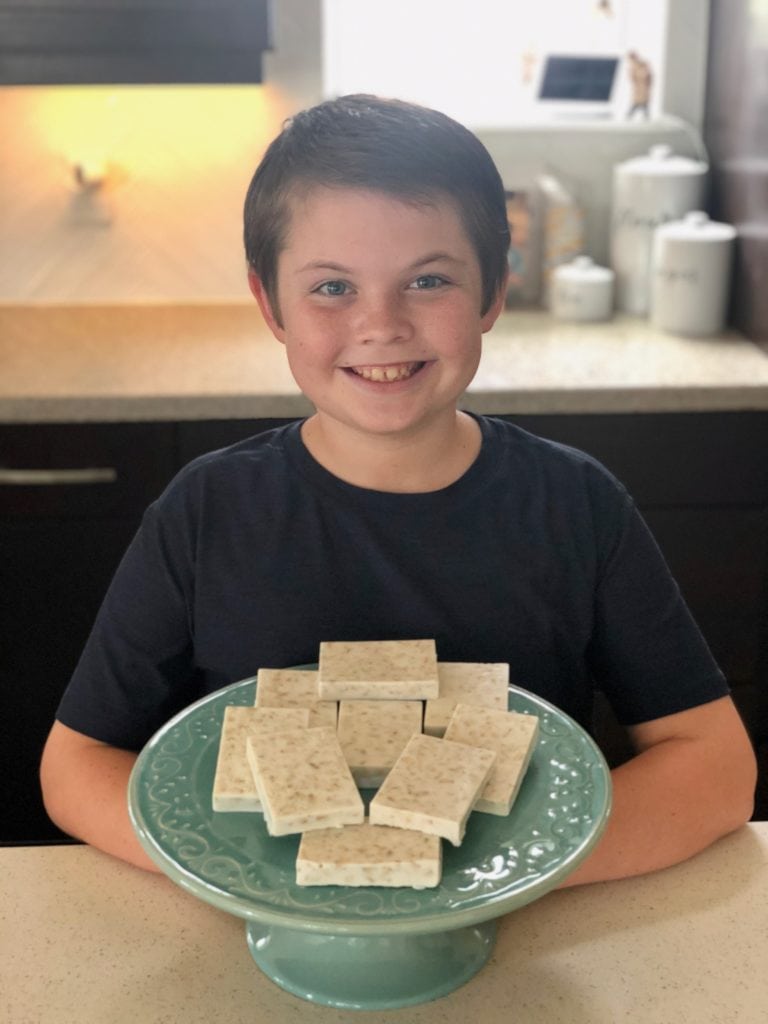Patrick read about soap making. Upon reading, he noticed the process was relatively easy and cost-effective. He decided he was going to start a small soap business. He didn’t have a name or a business plan, but he had the support of family and friends. He made various types of soap and began spreading the word of his newly created business. He recruited two friends as soap salespeople, and with them on his team, he thought of a name and logo. He had already begun selling soap, but the name and logo all came afterwards.

Patrick had an idea, and he began working toward his idea without worry. He talked and shared his idea with others without embarrassment of rejection. He mapped out plans after making the soap and didn’t fret about the soap being perfect the first go-around. He brainstormed with friends and came up with the name “Supreme Soaps.” Patrick was fearless and acted immediately. Patrick is 10 years old.
As adults, we get great ideas all the time, and then we mull over them and talk ourselves out of most of them. How many times have you seen an infomercial or a new product or service and thought to yourself, “I thought of that first! If only I had done something about it.” But adults have work, and bills, and taxes, and laundry, and groceries, and family stress, and health worries, and waiting on hold, and getting our oil changed, and the surmounting little nuances of life piling up daily. They take our focus away and strip us from giving focus to those great ideas that require action. Our load is full, and we either don’t have enough time or enough energy for anything new. We begin coasting through our lives and never act on our ideas.
In Stop Saying You’re Fine by Mel Robbins, she calls the coasting and lack of action “the snooze button.” She says circling, spinning, and thinking leads you nowhere. In You Are a Badass by Jen Sincero, she calls the ego the “Big Snooze,” or BS, and says it will do everything it can to stop you from changing and growing. In The 7 Habits of Highly Effective People, Stephen Covey says being proactive is the FIRST habit a person should adopt.
We have a way of sabotaging ourselves. We can easily tell ourselves why a great idea is actually a terrible one. We also don’t like feeling sorry for ourselves, and we end up accommodating for our lack of action. We justify our inaction in life and then resent others we see who are actively working toward a goal. Sincero says, “Watching someone else totally go for it can be incredibly upsetting to the person who’s spent a lifetime building a solid case for why they themselves can’t.”
If snoozing is your illness, the only medicine is action.
Covey says to take stock of our “circle of concern” and become aware of those things we can control. Within the circle of concern, we have a smaller “circle of influence,” or the things we can control. Proactive people focus their efforts in the circle of influence. This is where the proactive focus and positive energy enlarge our circle of influence.
Taking action allows us to feel a sense of control over our lives. Robbins states if you can reclaim control over 5% of your life and spend that time doing something productive, energy-inspiring, and action-oriented, you will quickly restore order and balance to your life; this small 5% acts like an anchor to reorient your whole perspective.
Be more like Patrick. Allow the 10-year-old within to act fearlessly.
Take action, TAKE action, TAKE ACTION.

